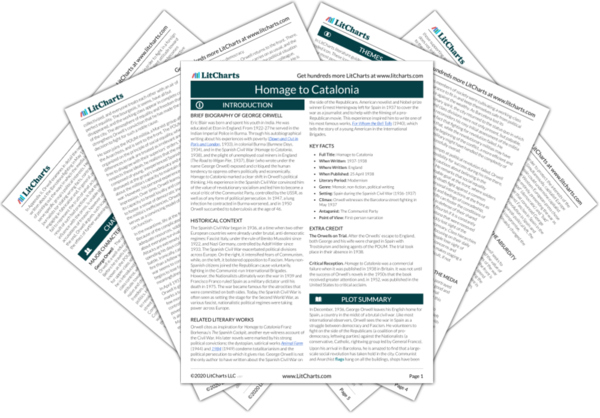LitCharts assigns a color and icon to each theme in Homage to Catalonia, which you can use to track the themes throughout the work.
The Possibility of Revolution
Political Infighting and the Media
Human Decency and The Absurdity of War
Subjectivity and Personal Experience
